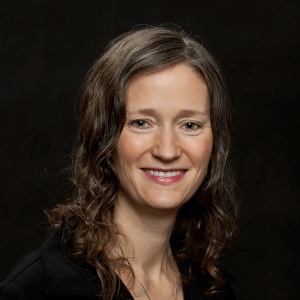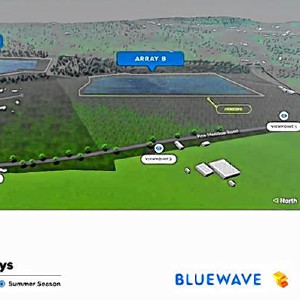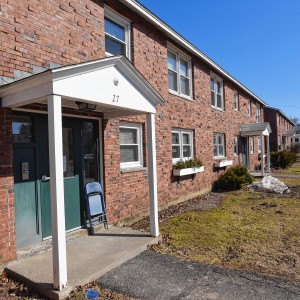Wise use of pasture and forest
| Published: 06-09-2023 10:25 AM |
Paul Voiland makes a great point stating that forests can be a critical means of storing carbon to offset the growing damage from climate change: “Forestland stores more carbon than grazing land” (Recorder, June 1).
Yes, if we utilized our extensive forestlands in New England wisely, some forests would grow for hundreds of years undisturbed, while some would be utilized for wood heating and locally produced timber for building. Our house and barn in Orange have been storing carbon for the past 200 years from trees growing in Orange during the 1700s. Hopefully, our house and barn will continue to store this carbon long into the future.
However, the reality is most of our forestland is not being used wisely. Today, I look out on Route 2 and see truckload after truckload of high-quality logs rolling by on their way to Canada to be milled into flooring, plywood and trim boards, only to be shipped back as a finished product for our consumption. Only poor-quality logs are milled in our very few remaining sawmills. The best-quality saw logs are shipped around the world, traded as a global commodity, and as a result, emit endless amounts of carbon into our already overloaded atmosphere.
Today, I stopped by our local market to buy vegetables only to find broccoli from California and asparagus from Peru. The milk I bought was from a plant in Wisconsin and the cheese was from Italy. Our whole economic system is a huge waste. Burning fossil fuels to ship logs and food around the world just makes no sense and contributes to the climate crisis.
On the other hand, locally produced and processed milk from cows raised on rotationally grazed pastures can feed people in a sustainable way. As the Recorder reported in “Milk and cookies for all,” Bree-Z-Knoll Farm in Leyden and the Gould Farm in Shelburne produce and process milk, cream, cheese and ice cream. The manure from the cows goes back on the pastures to feed the soil microorganisms that, in turn, grow nutrient-rich grasses. This is the essence of local food produced sustainably.
Paul Voiland states that, “We can all help to reduce the ecological disaster of climate change by eating less meat.” Unfortunately, becoming a vegetarian eating food shipped from all parts of the world will not help to reduce the carbon in the atmosphere. Unless you grow your own food or purchase local food raised in a sustainable way, you will contribute to the crisis. A sustainable farm can include well-managed pastures for milk and beef cows as well as for sheep, goats, chickens, ducks and geese, while increasing the carbon in the soil.
I just got back from Martin’s Farm in Greenfield with a load of organic compost for the local community garden, as well as our own extensive gardens. Here is perfect example of recycling carbon from cattle, vegetable waste, wood chips, you name it, into organic nutrients that will stay in the soil and produce local food for all.
Perhaps Ashley Randle, our new secretary of agriculture, and the Healey administration will encourage the local, sustainable production of forest products as well as food of all kinds. The answer to our climate crisis is not found in the choice of forests or pastures, but in the sustainable use of our local resources of pastures and forests.
Article continues after...
Yesterday's Most Read Articles
 Police report details grisly crime scene in Greenfield
Police report details grisly crime scene in Greenfield
 On The Ridge with Joe Judd: What time should you turkey hunt?
On The Ridge with Joe Judd: What time should you turkey hunt?
 New buyer of Bernardston’s Windmill Motel looks to resell it, attorney says
New buyer of Bernardston’s Windmill Motel looks to resell it, attorney says
 Greenfield man arrested in New York on murder charge
Greenfield man arrested in New York on murder charge
 Man allegedly steals $100K worth of items from Northampton, South Deerfield businesses
Man allegedly steals $100K worth of items from Northampton, South Deerfield businesses
 Joannah Whitney of Greenfield wins 33rd annual Poet’s Seat Poetry Contest
Joannah Whitney of Greenfield wins 33rd annual Poet’s Seat Poetry Contest
Michael Magee has a master’s degree in forestry from UMass Amherst and taught history for many years at Mahar Regional School in Orange.

 My Turn: A moral justification for civil disobedience to abortion bans
My Turn: A moral justification for civil disobedience to abortion bans My Turn: Industrial solar installations are overwhelming Northfield neighborhood
My Turn: Industrial solar installations are overwhelming Northfield neighborhood Guest columnist Rudy Perkins: Dangerous resolution on Iran
Guest columnist Rudy Perkins: Dangerous resolution on Iran Guest columnists Ellen Attaliades and Lynn Ireland: Housing crisis is fueling the human services crisis
Guest columnists Ellen Attaliades and Lynn Ireland: Housing crisis is fueling the human services crisis
